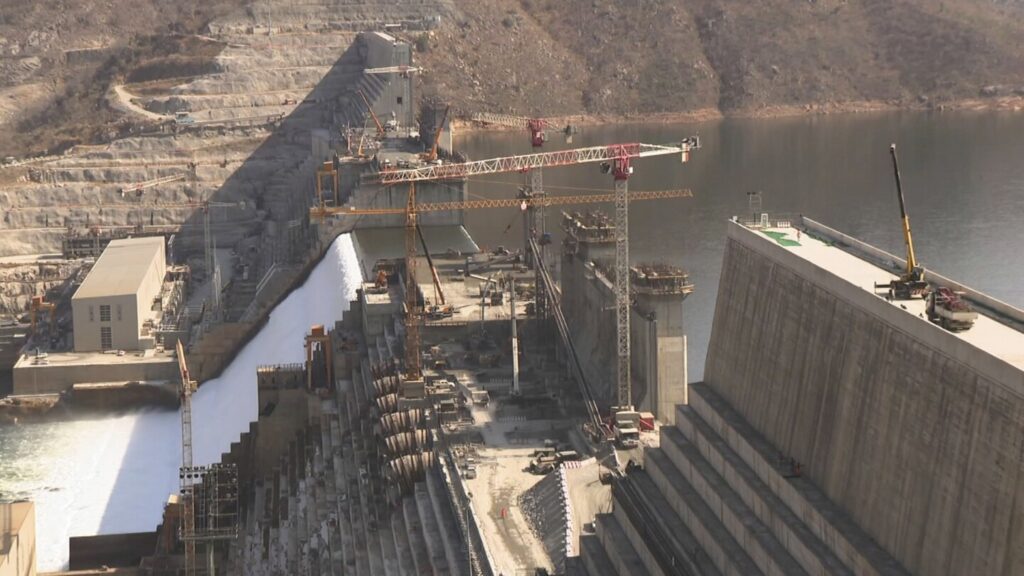
ADDIS ABABA, Ethiopia — Ethiopia’s Prime Minister Abiy Ahmed announced on Thursday the completion of the Grand Ethiopian Renaissance Dam (GERD), marking a significant milestone in the country’s quest to boost its electricity output. The announcement comes amid a longstanding dispute with Egypt over water rights to the Nile River, a critical resource for both nations.
Egypt has consistently opposed the dam, citing fears that it could significantly reduce its share of the Nile waters, which are crucial for its agriculture and the sustenance of its over 100 million citizens. The Nile is often described as Egypt’s lifeline, and the GERD has been labeled an existential threat by Egyptian authorities.
Ethiopia’s Ambitious Energy Plans
Prime Minister Abiy Ahmed, addressing lawmakers, stated that the government is preparing for the dam’s official inauguration in September. “While there are those who believe it should be disrupted before that moment, we reaffirm our commitment: the dam will be inaugurated,” he declared. Abiy emphasized Ethiopia’s commitment to regional cooperation, stating, “We believe in shared progress, shared energy, and shared water. Prosperity for one should mean prosperity for all.”
The GERD, which began construction in 2011, is poised to more than double Ethiopia’s current electricity output, generating over 6,000 megawatts. This development is expected to transform Ethiopia into a net energy exporter, potentially lifting millions out of poverty.
Historical Context and Regional Tensions
The dam’s completion follows years of tense negotiations between Ethiopia and Egypt, which have yet to yield a binding agreement on water management. The GERD is located on the Blue Nile, near the Sudanese border, and its reservoir can hold up to 74 billion cubic meters of water. The project has been a source of regional tension, with some observers previously fearing that the dispute could escalate into a military conflict.
However, Ethiopia has garnered diplomatic support from upstream nations, including Uganda. These countries are part of the Nile Basin Initiative, a regional partnership of 10 countries that signed an accord on the equitable use of Nile water resources. This agreement, which came into force in October, has not been ratified by Egypt or Sudan.
International Perspectives and Future Implications
The GERD’s completion represents a significant achievement for Ethiopia, but it also underscores the ongoing challenges in achieving a regional consensus on water sharing. The historical agreement between Egypt and the United Kingdom, dating back to 1929, allocated the majority of the Nile’s waters to Egypt and Sudan, overlooking the needs of other nations along the river basin.
Experts suggest that a new, inclusive agreement is necessary to address the concerns of all Nile Basin countries. “The GERD is a symbol of Ethiopia’s development ambitions, but it also highlights the need for cooperative water management in the region,” said Dr. Tesfaye Tafesse, a water policy expert at Addis Ababa University.
“The GERD is a symbol of Ethiopia’s development ambitions, but it also highlights the need for cooperative water management in the region.” — Dr. Tesfaye Tafesse
As Ethiopia prepares for the dam’s inauguration, the international community will be watching closely. The successful management of the GERD’s water resources could serve as a model for regional cooperation, or it could exacerbate existing tensions if not handled diplomatically.
While Ethiopia insists that the dam is essential for its economic growth, Egypt remains wary of its potential impact. The path forward will likely require continued dialogue and compromise to ensure that the Nile River can sustainably support all nations that depend on it.
The completion of the GERD is a pivotal moment in East Africa’s development narrative, with implications that extend beyond the region. As the inauguration approaches, the focus will be on whether Ethiopia and Egypt can find common ground in their shared reliance on the Nile.







